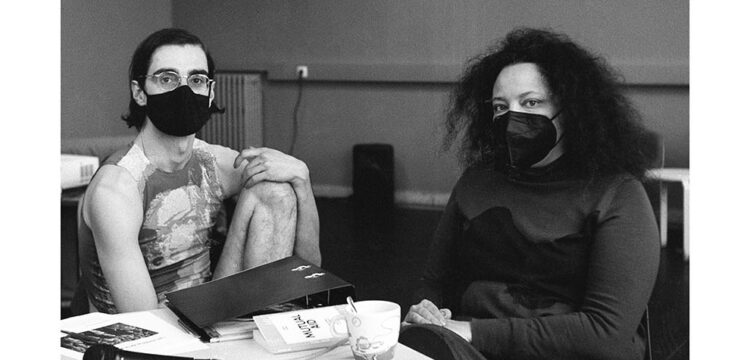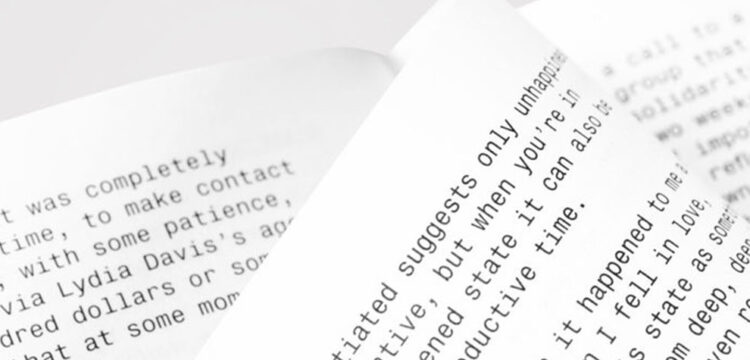Scattered Notes Toward a Visual Flight
An interview with Antonio Della Guardia
Vasco Forconi has been a long-time admirer of Antonio Della Guardia’s work, so essential in its forms and yet always able to disclose hidden processes of our reality. His constant attention to labor, to the ways it shapes our experience of time and our cognitive structures has instilled his recent practice with the poetic urgency of identifying and sharing “cultural techniques of survival.” From these themes, they have initiated a long dialogue that resulted in the exhibition Per un Prossimo Reale, recently held at Fondazione Pastificio Cerere in Rome. On the sidelines of this experience, Vasco invited Antonio to share a broader reflection on the role of art and his own personal practice in the pursuit of what he describes as techniques of escape, evasion, and care.
Per un Prossimo Reale was held between September 23 and December 18, 2021. Commissioned and curated by Vasco Forconi, the exhibition was made possible thanks to the support of the Italian Cultural Institute in Stockholm.
Vasco Forconi: The attention to gaze and vision has often had a central role in aesthetic theory and artistic research, but in your recent work it seems to take on an almost curative connotation. The great shift toward introspection that, willingly or not, we have shared over the past two years maybe has something to do with this process?
Antonio Della Guardia: I began my reflections on the conditioning of cognitive processes caused by the digitization of work at the end of 2018. The sudden arrival of a global pandemic has only accelerated an already ongoing transformation of human perceptual structures. In the late 1990s, Eric Schmidt, who would later become Google’s CEO, declared that the goal of the planet’s largest companies should be to maximize the number of eyeballs they could consistently engage and control. It seemed unlikely to become true, and yet this process has been accomplished so perfectly that such companies have acquired the power to influence our attention in a widespread and neuro-pervasive manner. As the attention was robbed and manipulated to its core, the dichotomy between mind and body has been reinforced even more. An imperceptibly perfect division whose reunion appears like a distant horizon. It seems to me that the field of vision, combined with that of attention, is one of the territories on which to fight, given that the economy of hyper connection seems to have already secured a victory over the future.
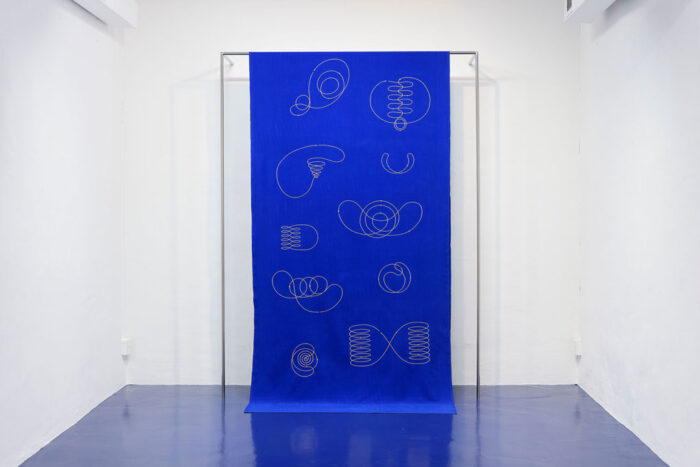
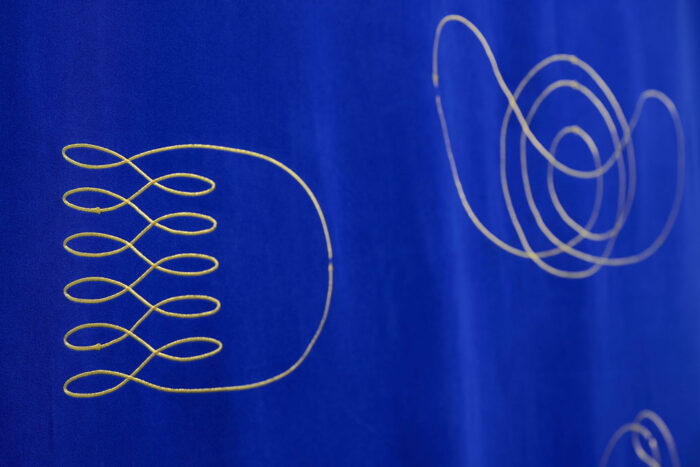
What role can artistic research play in this process?
It is difficult to identify a path or strategy but in my opinion, the persistence of the research is what fuels the hope that a way can be found. For this reason, I believe it’s important to try and engage with artistic practices that can recalibrate the field of vision, articulating new logics of thought aimed at putting our well-being back at the center of existence. In order to determine onto the world we must re-learn to see, and re-learn to imagine to be able to conceive an alternative. It is not a desire for the annihilation of technology, or the return to a primitivist paradise, but the activation of those variables that can suggest a change in our submissive relationships, leading to the discovery of another slower temporality. These are droplets compared to an oceanic desire for change, but to seek out techniques for the re-semantization of vision means to initiate a true practice of evasion.
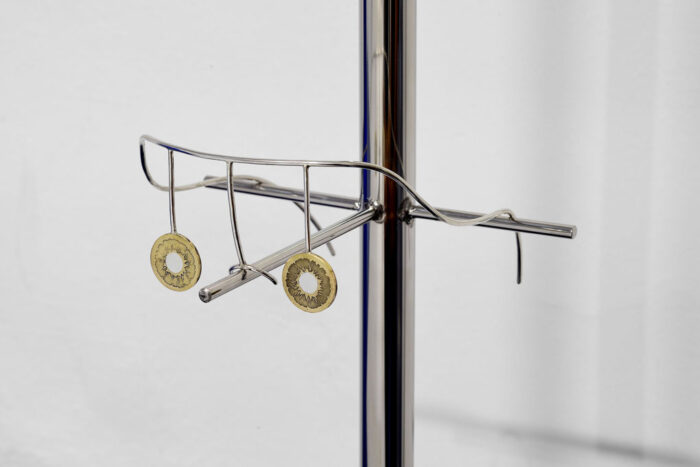
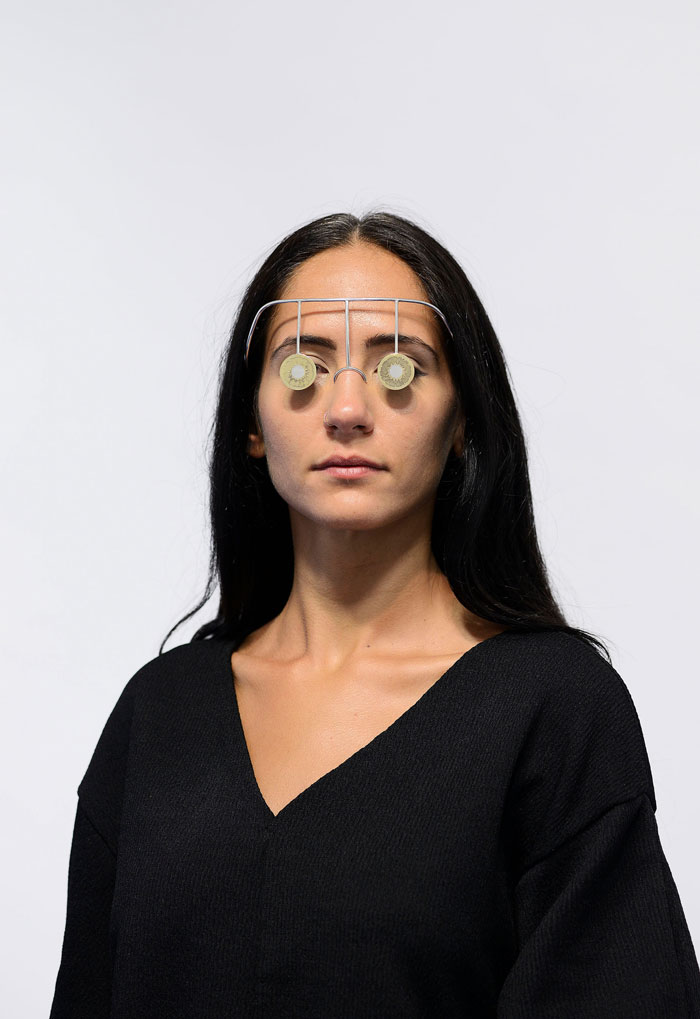
In your work, this idea of evasion, escape, and flight as a cultural technique of survival is recurrent…
In my research on vision, I encountered the studies of William Horatio Bates (1860-1931), a North American physician known for the development of a method to retrain eyesight without the use of glasses. This method has been subjected to strong criticism by the scientific community but celebrated by unorthodox researchers of perceptions, such as Aldous Huxley who was struck by its strong imaginative charge and wrote The Art of Seeing in 1942. Starting from this method, or rather from its most poetic suggestions, I chose and reformulated a series of performative practices that resulted in a cycle of new works and into the production of our exhibition Per un Prossimo Reale. These exercises, which can be practiced day after day, become the cornerstone of a possible manifesto-manual on care. To connect body and mind through minimal gestures such as exploring the peripheral vision, bringing the gaze to a distance, drawing a line with thought, or simply closing your eyelids and letting the imagination flow, means to identify poetic and subversive techniques against visual conformism. Forms of defense and action at the same time, aimed at activating our numbed attention and capable of—hopefully—reuniting thought and will. A method based on simple actions that can also be replicated outside the exhibition space, eventually insinuating itself into the rhythms and patterns of everyday life.
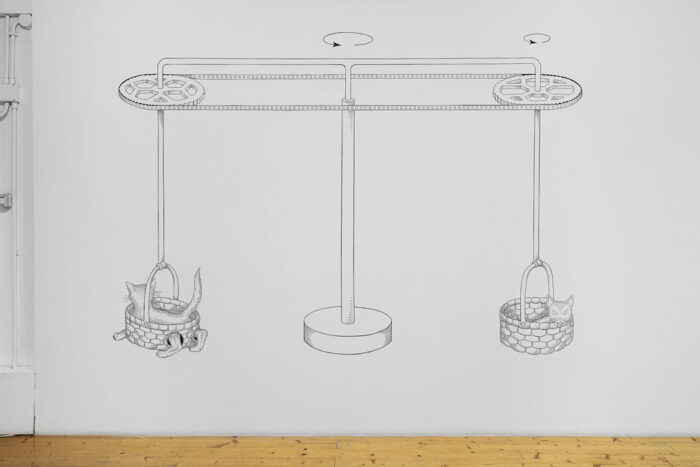
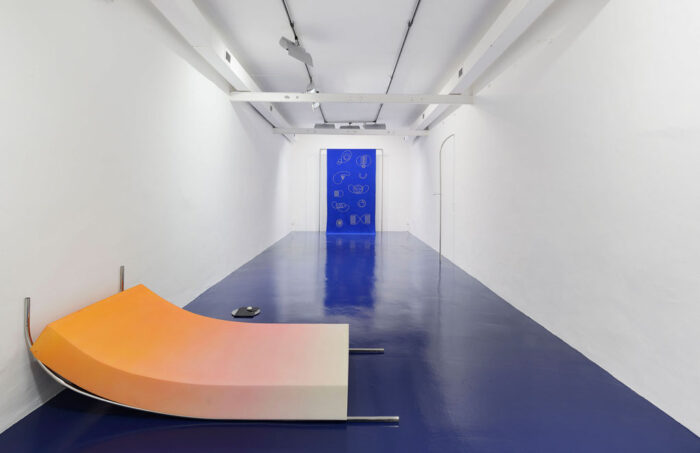
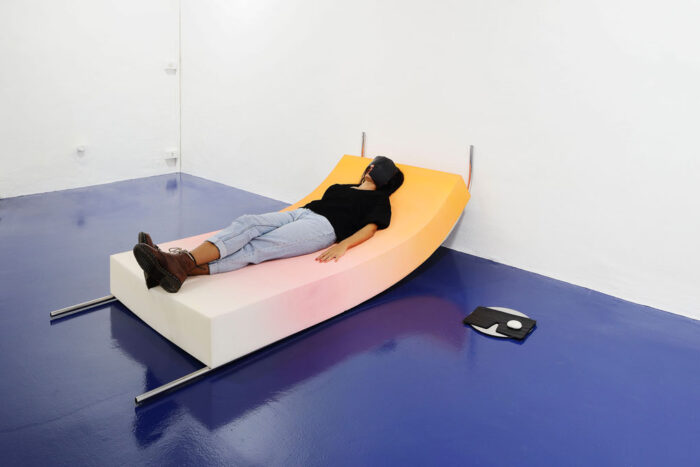
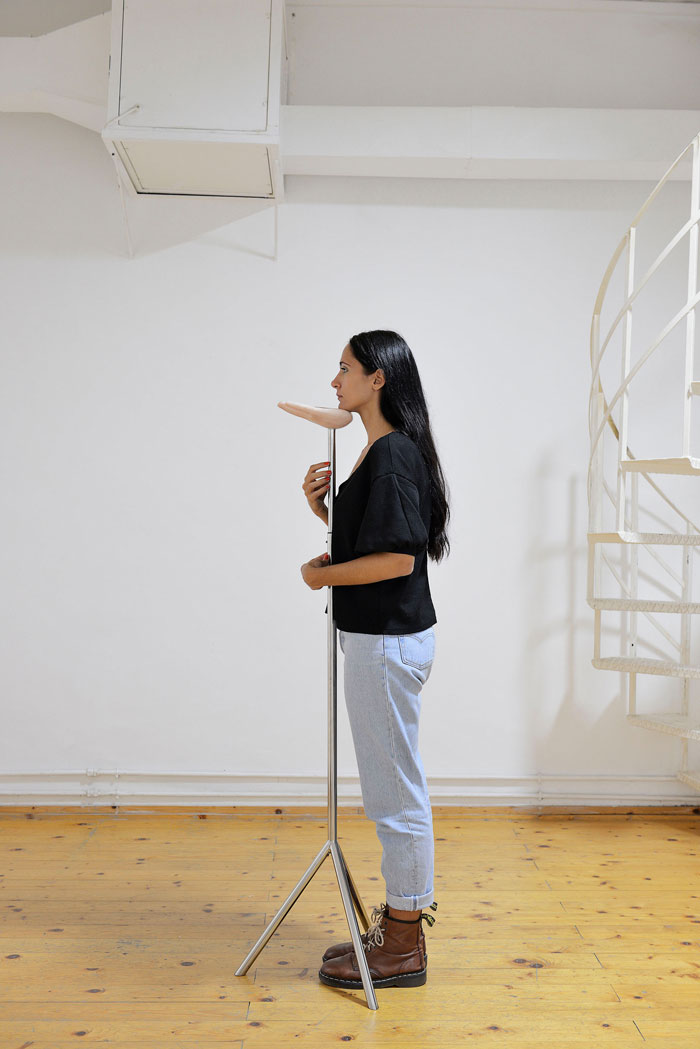
When engaging with the space and device of the exhibition, how do you shape these practices?
The different performative techniques take shape through a series of works accurately positioned within the space. Through the encounter with the visitor, they become devices aimed at stimulating dormant cognitive energies. Minimal sculptural and installation entities that transform the whole exhibition space into an environment, a total device that can be used and inhabited by the audience, a space not to be walked through but to be fully experienced. A sort of training ground, or rather an after-work hang out for the imagination in which I hope that body, space, and time might unite for a moment. Starting from the exhibition space, a grammatical epicenter of slowness is re-articulated, one in which the freedom to do or not to do assumes exactly the same value. In the end, what I am trying to propose through my work is to legitimize a dimension of activism of pause and interruption. A time-space in which the very act of looking inward can suggest a trajectory aimed at dismantling the hegemony of a consolidated contemporaneity.



